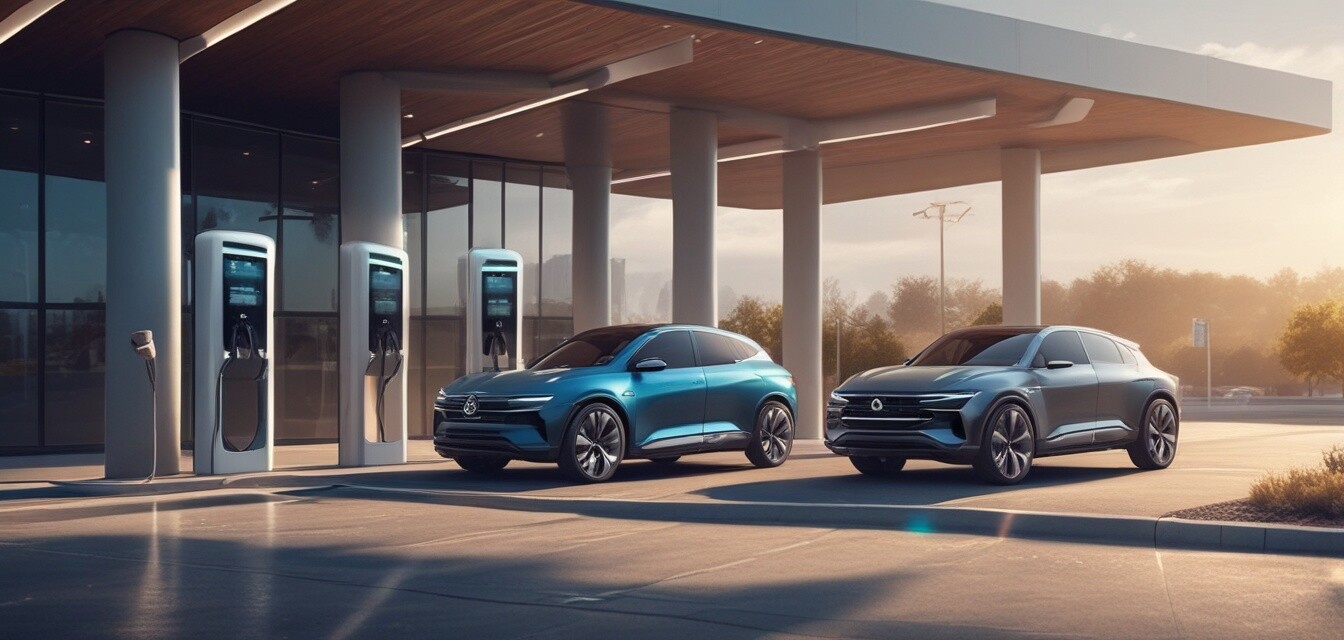
Latest Innovations in EV Charging Technology
Key Takeaways
- Smart chargers enable faster charging and home energy management.
- Integration of renewable energy sources reduces carbon footprint.
- Wireless charging technology is becoming more accessible.
- Public charging infrastructure is evolving with faster and more reliable solutions.
- Government policies are supporting the deployment of advanced charging networks.
As the electric vehicle (EV) landscape continues to evolve, the need for cutting-edge charging technology intensifies. By 2025, we are witnessing groundbreaking advancements making EV charging faster, smarter, and more eco-friendly. In this article, we will explore the latest innovations in EV charging technology, emphasizing smart charging solutions and the incorporation of renewable energy.
Smart Chargers: The Future of Home Charging
Smart chargers are revolutionizing how we charge our electric vehicles at home. These devices use advanced technology to optimize charging processes by communicating with both the car and the electrical grid. Therefore, they not only charge your vehicle but also help manage your household energy consumption.
Key Features of Smart Chargers
- Time-of-Use Rates: Smart chargers can schedule charging during off-peak hours, saving costs by taking advantage of lower electricity rates.
- Remote Management: Users can control charging sessions through mobile applications, making it convenient to start and stop charging as needed.
- Real-Time Data: Such chargers provide valuable feedback, allowing users to track energy consumption and costs.
Integrating Renewable Energy in Charging Stations
As sustainability becomes paramount, many manufacturers are integrating renewable energy sources like solar and wind into EV charging stations. This integration not only aids in reducing carbon emissions but also promotes the use of clean energy technologies.
| Renewable Energy Source | Benefits |
|---|---|
| Solar Energy | Utilizes solar panels to generate electricity, significantly reducing reliance on fossil fuels. |
| Wind Energy | Wind turbines can be installed near charging stations, harnessing natural wind to generate electricity. |
| Energy Storage Systems | Battery systems can store excess energy generated from renewable sources, ensuring consistent power availability. |
Wireless Charging Technology
Wireless EV charging technology is another innovation gaining traction. This technology eliminates the need for cables, providing a seamless charging experience.
Advantages of Wireless Charging
- No direct contact is needed: Reduces wear and tear on connectors.
- Convenience: Simply parking over the charging pad initiates charging.
- Improved usability in public charging locations: Potentially encourages more drivers to switch to EVs.
Advancements in Public Charging Infrastructure
Investment in public charging infrastructure is critical in supporting the growing number of EVs on the road. Innovations in this area include:
- Ultra-Fast Charging Stations: Capable of charging an EV in under 30 minutes, these stations are typically found along highways, promoting long-distance travel.
- Smart Grid Integration: These stations can communicate with the grid, allowing for more efficient energy distribution based on demand.
Government Policies Supporting EV Charging Innovations
Governments worldwide are recognizing the importance of EV charging infrastructure and implementing policies to support its development. Initiatives may include:
- Tax incentives for installing EV chargers in residential areas.
- Funding for constructing public charging stations.
- Regulations mandating that new buildings incorporate EV charging solutions.
The Future of EV Charging Technology
As we head towards 2025, the innovations in EV charging technology are expected to accelerate further. Stakeholders in the industry must remain informed about developments to seize opportunities. To keep up with ongoing changes in the electric vehicle charging landscape, you can check our Electric Vehicle Charger Buying Guides for more insights.
Pros
- Enhanced convenience for EV owners.
- Environmental benefits through renewable energy integration.
- Support for widespread EV adoption.
- Improved energy management in homes.
Cons
- High initial investment costs for advanced technologies.
- Dependence on government support for infrastructure improvements.
- Challenges in standardization across different manufacturers.
Staying updated on these advancements is essential as we embrace the future of electric mobility. For more news on electric vehicle chargers and industry trends, visit our section on Electric Vehicle Charger News.

